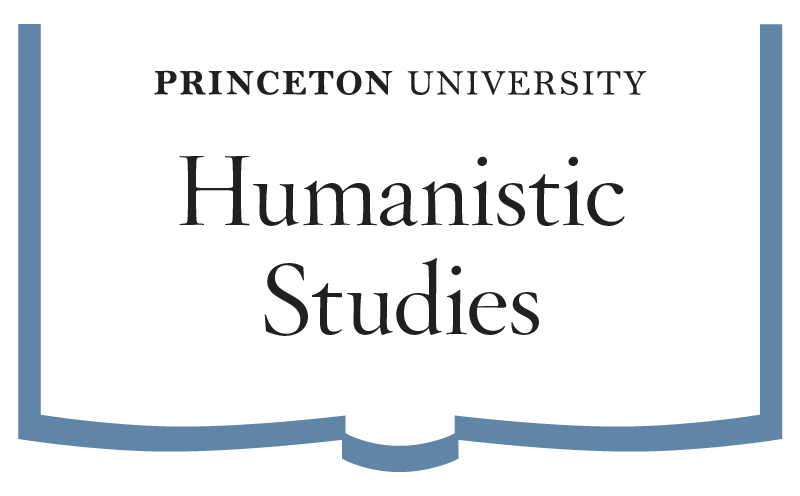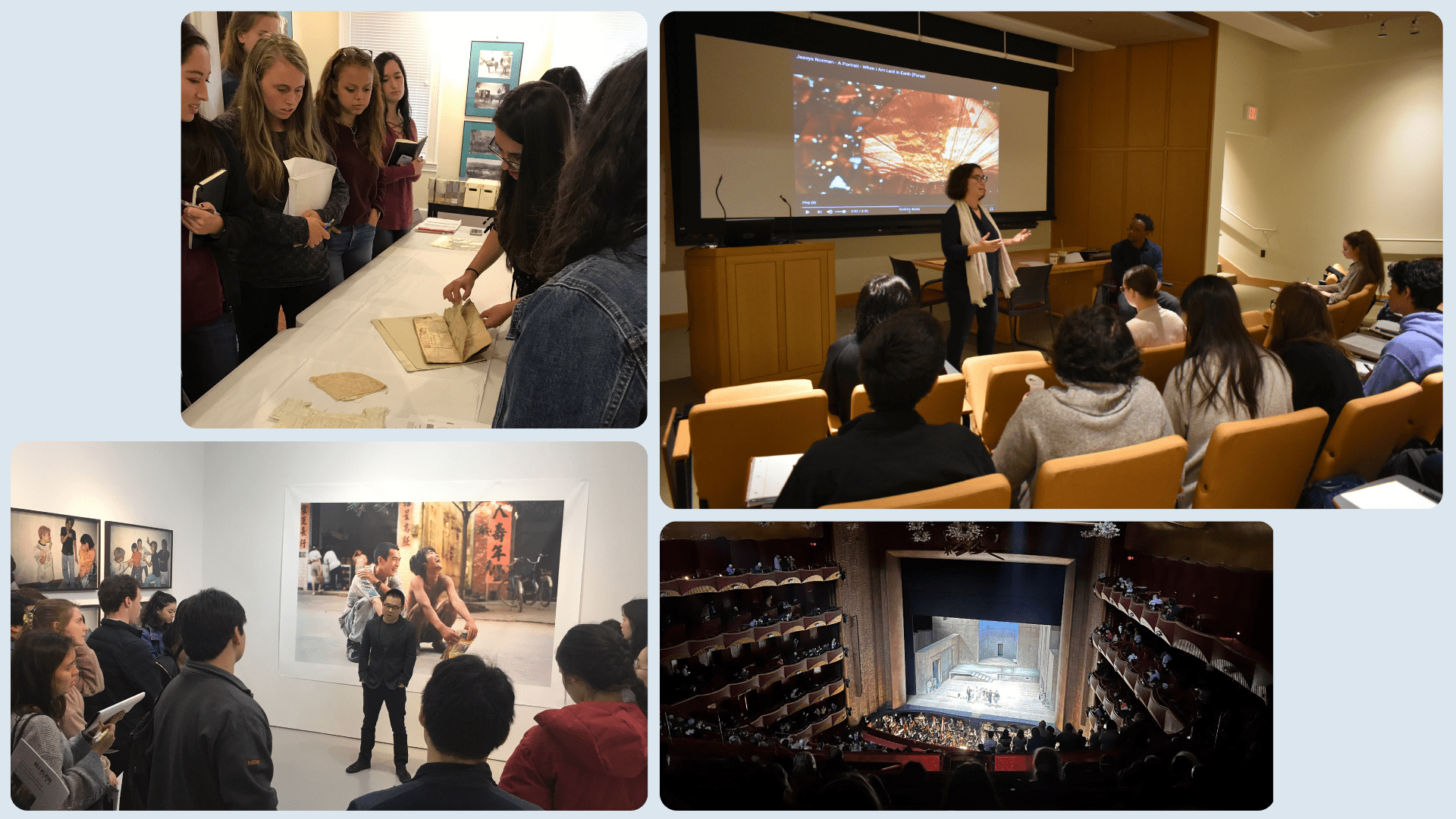What is it to be human?
The new minor in the Humanities Council’s Program in Humanistic Studies reflects on this major question and more, inviting students to explore interdisciplinary and cross-cultural approaches to issues that are both urgent and timeless.
Students in the Class of 2025 and beyond can pursue the minor program of study, which offers an expansive intellectual experience and a lively, welcoming community.
Humanistic studies minors will build their own curriculum while exploring emerging fields and engaging with the community and the world.
The program showcases the broad reach of the humanities–in space and time, in scholarship and in action—in a new “cluster” model of course offerings. Students diversify their curriculum by choosing courses from at least two of the five clusters: tradition and transformation, global or comparative humanities, engaged or public humanities, data and culture, and humanities and sciences in dialogue.
“Minors in humanistic studies follow the humanities to all sorts of destinations: global and local, public and private, contemporary and ancient,” said Esther Schor, chair of the Humanities Council and director of the Program in Humanistic Studies. “Some courses delve into archives; others analyze data; still others thrive on intuition and spontaneity. Amid the variety, our courses share one audacious feature: they all cross the borders of familiar disciplines and fields.”
Building a sturdy foundation
Students can choose among three Humanities Sequences – Interdisciplinary Approaches to Western Culture, East Asian Humanities, or Near Eastern Humanities – as a foundation for the minor. Each year-long, team-taught sequence follows a tradition over centuries, studying the culture’s events, ideas, texts, and artifacts.
“In Humanistic Studies, we are committed to values that lie at the heart of humanistic inquiry: critical thinking, reasoned discourse, diversity, civility, empathy, and compassion,” said Schor, the John J.F. Sherrerd ’52 University Professor and professor of English.
Historical in sweep, these sequences trace both cultural continuities and revolutions in thought and politics; each course examines works that grapple with justice, human rights, racism, communal life, and social transformation. In each sequence, students join a lively intellectual community of peers, student mentors, and the team of professors who co-teach the course.
Caroline Coen ’25, who is majoring in computer science, credits her experience in the Western Humanities Sequence for exposing her to the breadth of learning opportunities in the humanities.
“The humanistic studies minor was the right fit for me because it empowered me to explore a wide variety of humanistic disciplines. I have especially enjoyed having the chance to study literature, history, classics, art history, and religion,” said Coen. “I ultimately majored in computer science, but the humanistic studies minor has allowed me to continue to make the humanities a major facet of my education. I am so grateful that Princeton is a place where a student can pursue interests as disparate as my own.”
Engaging with the world, preparing for professions
When pursuing the minor, students will encounter team-taught, cross-disciplinary courses and capstone seminars, which build bridges across the humanities, creative arts, social sciences, and natural sciences. These classes offer students opportunities for hands-on experience both in and out of the traditional classroom.
Students in the seminar “Land and Story in Native America” learned from community partners in the Munsee-Delaware Nation as they conducted archival research on seeds for Princeton’s Seed Farm, while “Arts and the Invisible City: Race, Policy, Performance” introduced students to the rich arts community in Trenton. In “Making the Viking Age,” students examined the complex lives of people in Scandinavia and Northern Europe during the Viking Age through a host of immersive activities in both Princeton and Denmark – including trips to Special Collections, the Arts Council of Princeton, and a local blacksmith.
Faculty in humanistic studies develop innovative course topics that offer new horizons for humanities research.
Regularly-offered courses like “Introduction to Digital Humanities” and “Literature as Data” establish a framework for humanists living in an increasingly data-driven society. Team-taught courses, including “Medicine, Literature, and the Visual Arts” and “Bio/Ethics: Ancient and Modern” bring disability studies to the forefront, as students think critically about both practical and philosophical questions in medical humanities.
Joining a welcoming community
Right from the start, students enter a community of humanists on campus. Undergraduate humanities mentors offer advice about course selection and international experiences, and participate in informal peer discussions about literature, philosophy, history, and art.
Nolan Musslewhite ’25 chose to pursue the humanistic studies minor to “maximize interdisciplinary opportunities in the humanities” at the University. He also joined the program as a humanities mentor.
“Princeton can be a big place, and the humanistic studies community has provided an academic home for me among the dozens of departments and thousands of courses at Princeton,” said Musslewhite, who is a history major. “Through international trips, excursions to the opera and museums, talks and lectures at Princeton, research funding, mentorship opportunities, and the remarkable program staff, I’m grateful for how immensely it has enriched my experience at this school.”
All humanistic studies minors are invited to join the Behrman Undergraduate Society of Fellows, a lively monthly gathering of students who, whatever their major, relish the exchange of ideas and opinions. Students jointly decide which faculty members to invite as guests for the coming semester and enjoy trips to New York and Philadelphia for cultural events and museum tours.
“The Humanistic Studies minor ushers in a new era for Princeton students who love thinking, reading, and reflecting, whether in solitude or in community,” said Schor. “While honoring our tradition of rigorous encounters with texts and images, we’re exploring how the humanities move and work in the world.”













